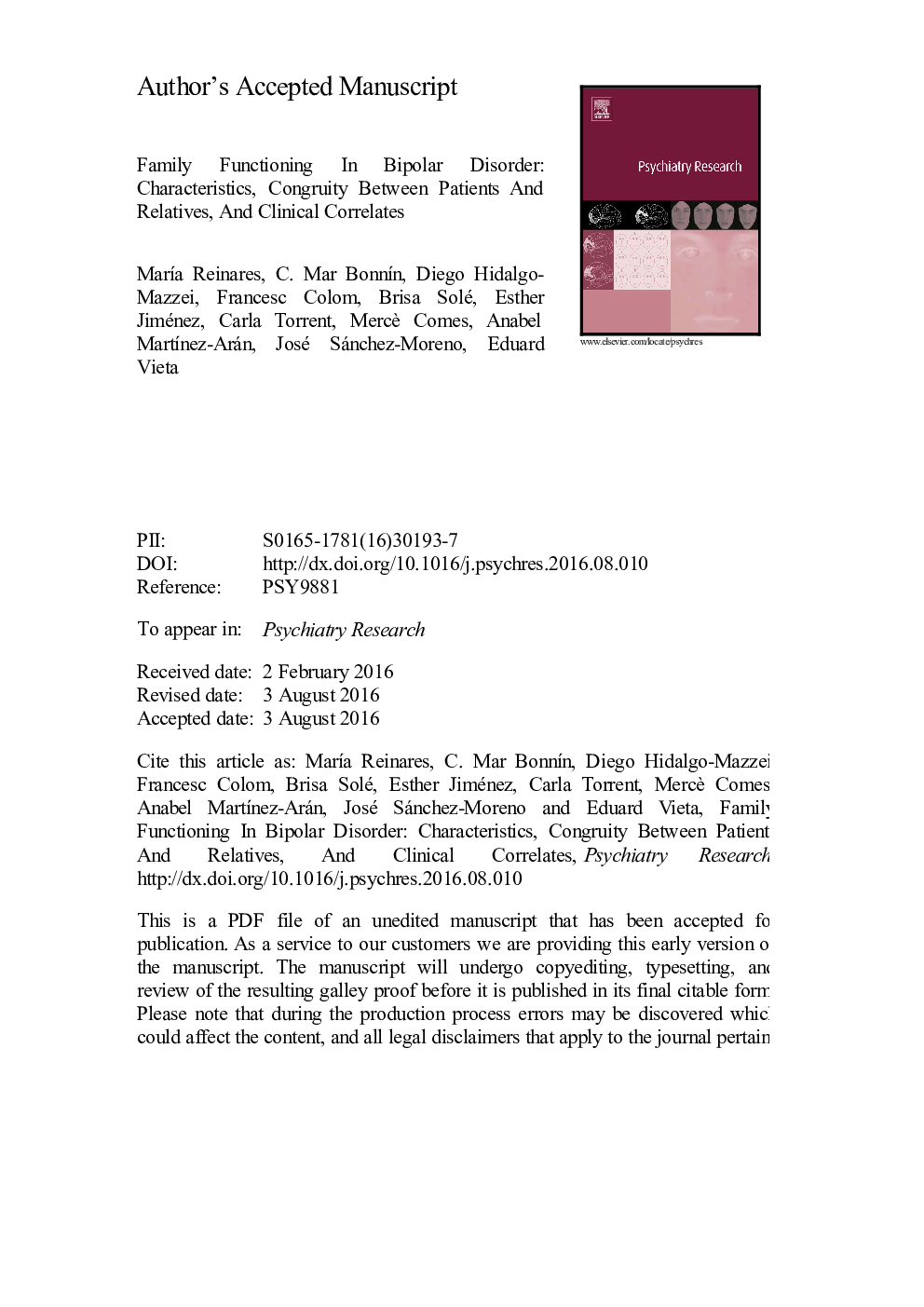| Article ID | Journal | Published Year | Pages | File Type |
|---|---|---|---|---|
| 6812294 | Psychiatry Research | 2016 | 32 Pages |
Abstract
Functional improvement has become one of the aims of the treatment of bipolar disorder. However, scant attention has been given to family functioning, even though it has a role in the illness outcome and is affected by the disorder. The aims of this study were to compare family functioning reported by euthymic patients with bipolar disorder and healthy controls; explore the level of congruence in the perception of family environment between patients with bipolar disorder and their relatives; and analyse the relationship between clinical variables and family functioning. The sample comprised 82 adult euthymic subjects with bipolar disorder, 82 family caregivers of these patients and 47 healthy controls. Participants completed the Family Environment Scale. Results showed moderate correlations and a mean pattern almost identical between relatives' and patients' reported scores in family functioning subscales. There were significant differences between patients and controls, favourable for the latter, in the subscales cohesion (p<0.005), expressiveness (p=0.002), conflict (p=0.038), intellectual-cultural orientation (p=0.001), active-recreational orientation (p<0.005), and a non-significant trend in organization (p=0.064). Significant associations were found between family environment and clinical variables of severity. These findings contribute to increasing the understanding of family functioning in bipolar disorder and highlight the importance of family work.
Related Topics
Life Sciences
Neuroscience
Biological Psychiatry
Authors
MarÃa Reinares, C. Mar BonnÃn, Diego Hidalgo-Mazzei, Francesc Colom, Brisa Solé, Esther Jiménez, Carla Torrent, Mercè Comes, Anabel MartÃnez-Arán, José Sánchez-Moreno, Eduard Vieta,
